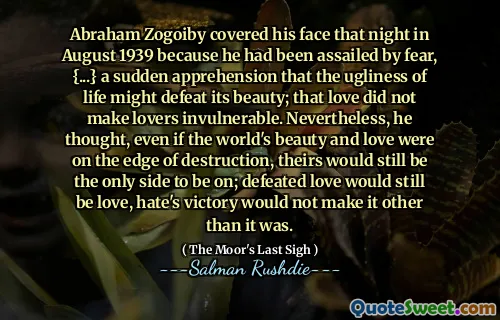I had become a kind of information magpie, gathering to myself all manner of shiny scraps of fact and hokum and books and art-history and politics and music and film, and developing, too, a certain skill in manipulating and arranging these pitiful shards so that they glittered and caught the light. Fool's gold, or priceless nuggets mined from my singular childhood's rich bohemian seam? I leave it to others to decide.
In "The Moor's Last Sigh," Salman Rushdie reflects on his nature as a collector of diverse knowledge and experiences, likening himself to an information magpie. He expresses the notion that he has accumulated a wide range of facts, ideas, and influences from various fields, all of which he skillfully manipulates to shine in a compelling way. This metaphor reveals both the beauty and potential emptiness of the knowledge he gathers, suggesting that the value of what he creates can be subjectively judged by others.
Rushdie's description of his intellectual pursuits raises questions about the authenticity and significance of the information he collects. He poses a challenge to the reader, inviting them to discern whether his findings are genuine treasures or simply superficial distractions. The interplay between "fool's gold" and "priceless nuggets" speaks to the complexity of knowledge and creativity in the artistic process, reflecting on the intricate relationship between a person's experiences and the value they extract from them.






